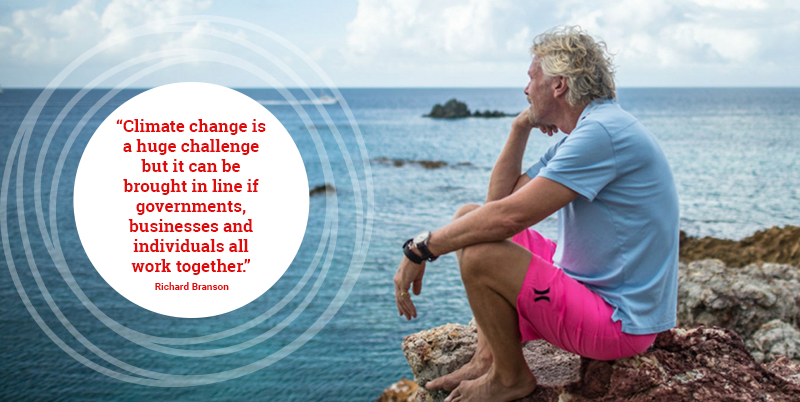Incubate Courageous Collectives
RMI
Back to our workWhat is RMI?
RMI is a US-based NGO tackling the climate crisis by focusing on its main contributor: energy production and use, which represents 70% of global greenhouse gas emissions.
In 2014, Carbon War Room (CWR) – founded by Richard Branson and a group of like-minded entrepreneurs– merged into RMI. CWR’s goal was to accelerate the adoption of business solutions to advance the low-carbon economy. It engaged directly in markets to generate business-led solutions in maritime shipping, buildings, aviation, and other sectors, and it prioritised the flow of capital to low-carbon solutions as the key metric of success.
Once merged, RMI brought more than 30 years of thinking, analytical rigor and breakthrough insight, while CWR brought over five years of entrepreneurial action. Together RMI-CWR engaged businesses, communities, institutions, and entrepreneurs to make a cost-effective shift from fossil fuels to renewables.
Today, CWR’s bold, entrepreneurial approach is part of all RMI does to transform global energy use – they continue to work with the vision of a world thriving, verdant, and secure, for all, forever.
What does RMI do?
RMI works with businesses, policymakers, communities and other organisation to identify and scale energy system interventions that will cut greenhouse gas emissions by at least 50% by 2030.
Since 1982, RMI has utilised its unique techno-economic expertise and whole-systems thinking to publish ground-breaking research and analysis. It brings together collaborations of rare reach, range and expertise – creating unconventional partnerships and mobilising action to drive change on the massive scale needed to combat the climate crisis.
RMI’s approach is to THINK bigger, DO boldly, and SCALE globally. It applies rigorous research and analysis to unlock market-based solutions that can be replicated and implemented now. Working with partners, RMI activates the market catalysts – new technologies and business model innovations, finance and capital flows, big data and capacity building, all sped by effective policy – that can drive rapid, systemic change and economy-wide transformation.

